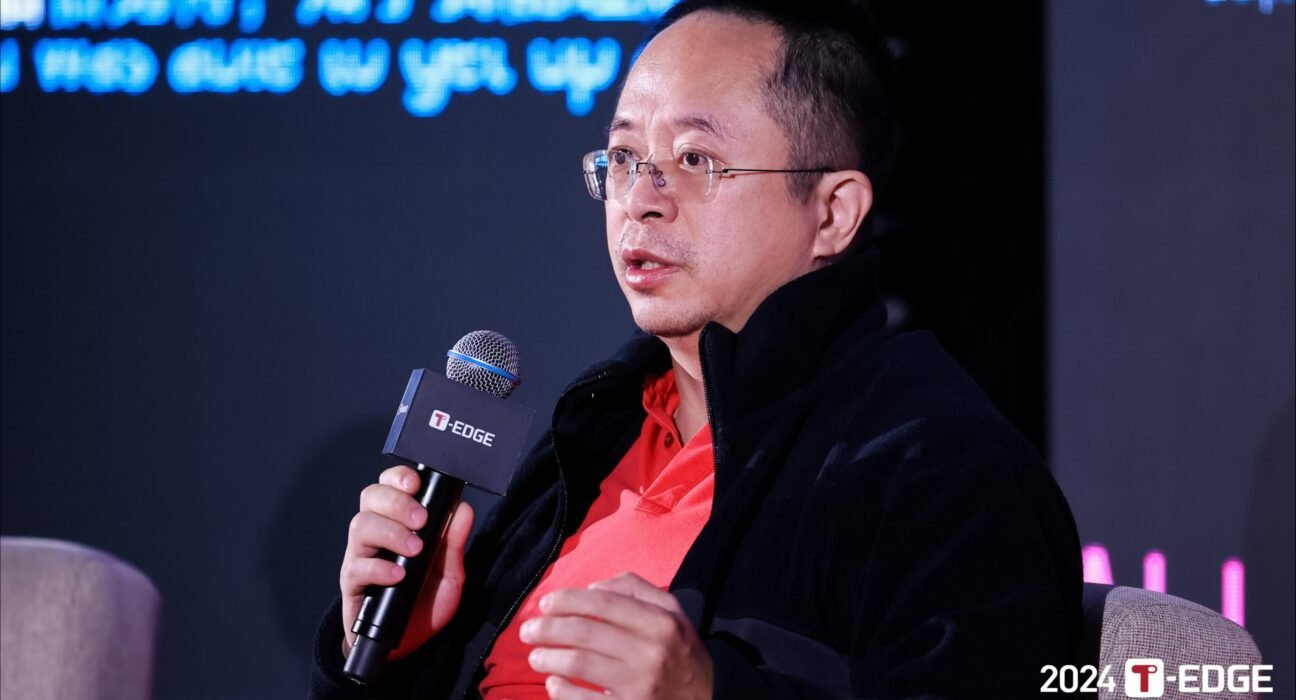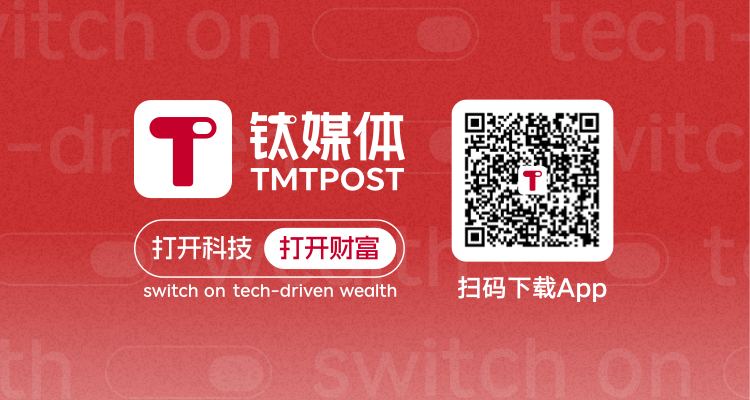Zhou Hongyi, founder of 360 Group
Zhou Hongyi recently made a dream linkage between “short drama” and “AI search”, two hot words of the year in the Internet circle.
At the 2024T-EDGE Innovation Conference and TMTpost Financial Annual Conference, Zhou Hongyi, founder of 360 Group, revealed that the shooting of the short play was an “inspiration”. The inspiration came from a movie with the theme of “20 A skit about a 50-year-old tyrannical president falling in love with a 50-year-old aunt.
The short drama “Reigniting Life: The Hidden Hacker Stuns the World” was launched on November 27. It tells the love story between the CEO, his son and the female cleaner, as well as stories related to AI entrepreneurship. In the play, Zhou Hongyi plays the boss of the “Red Hat Hacker Alliance” and Lao Zhou of the “365 Company”. In the play, he invested 100 billion yuan in the “Nano Search” project of the male and female protagonists.
This is his first time starring in a short drama, in order to promote his new product “Nano AI Search”. The short series became an instant hit, with over 10 million views.
On December 7, Zhou Hongyi said at T-EDGE that he doesn’t like watching short dramas, but he can’t stand the fact that most people like them. Demonic skits and short videos have “formatted” people’s minds. They use people’s dopamine mechanism, and ordinary people need to exercise restraint.
“The rational Zhou Hongyi thought this was made up, but the emotional Zhou Hongyi said let’s see what happens in the next episode.” Zhou Hongyi said with a smile.
Cheap, magical short drama, AI search with skyrocketing valuation
At TMTpost 2024T-EDGE, Zhou Hongyi said that the short play he shot this time was a performance art. After the short play went online, some well-known directors and actors in the art world sent him messages asking, “Why do you do such a low-level thing as making a short play?”
The cost of short plays is extremely low and the communication effect is excellent. The planning of this drama took only one day and cost 100,000 yuan. So far, the number of views has exceeded tens of millions. “Can the advertisement you spent 100,000 yuan on to promote your product have this effect?”
Zhou Hongyi believes that the current short dramas may seem rough in filming and rough in scripts, but they are not popular among the people. As long as there is a strong user base, these things can be slowly improved. In the future, short plays will be divided into two types, one is paid short plays and the other is commercials.
Zhou Hongyi was involved in short drama filming for the first time to promote his new product Nano Search. At the end of last month, 360 Group officially launched a new multi-modal content creation engine – Nano AI Search, building a workflow with “searching, learning, writing and creating” as its core capabilities.
According to 360 Company, unlike traditional search engines, Nano AI Search breaks the inherent model of “presenting existing images, texts and videos on the Internet after searching”.
After analyzing the different needs of search content, Nano Search can rewrite and create search results. It can also retrieve information through voice questions, photo searches, video uploads, etc., and convert search results into creative resources to form videos. Creation, realizing “search is creation”.
AI search has become a popular area for the current industry to explore AI applications. In the domestic market, in addition to 360,Baidu,ZhihuQuark, Secret Tower AI, etc., have recently launched independent applications related to AI search functions, or functions in different scenarios.
Abroad, an amazing case in the field of AI search is Perplexity, an artificial intelligence search engine startup. It has been established for only more than two years. The current company valuation has exceeded 9 billion US dollars, with an increase of more than 1,700% this year. It is currently a hot topic in Silicon Valley. One of the new unicorn companies, it is also regarded as one of ChatGPT’s strong competitors.
Leveraging large models, Perplexity answers and queries in a conversational manner, using network resources to generate answers and referencing links in text responses to restructure search patterns.
Perplexity AI has more than 15 million monthly active users, more than 2 million app downloads, and answers more than 230 million search queries every month. However, because Perplexity adopts a freemium model, monthly active users are not necessarily its core data indicator.
Commercialization is the pain of large AI models, and it is also a sharp sword to challenge giants.
Although valuations are soaring at an unprecedented rate, and there are many technology giants with capital support, a more difficult problem for the startup Perplexity is how to find a more suitable business model.
At the same time, the answer display mode of AI search breaks the original chain of interests and causes websites that rely on traffic to lose their source of income. Whether AI search can create a new industrial ecosystem is also unknown.
Zhou Hongyi believes that business model issues are exactly the opportunity for new AI searches like Perplexity to challenge traditional search giants.
“We have studied Perplexity, but the technology is just that. At present, AI search has not found a place to place advertisements. This problem exists for us.” Zhou Hongyi said.
He found that the reason why search giants such as Google and Baidu have not bet heavily on AI search for the time being is because they need to transform the huge search volume of traditional search engines into ad-free “answer engines”. Can they defeat the new entrants? The challenger is not yet sure, he may “draw the sword from the palace” and take his own life first.
However, if AI search gains long-term user stickiness and finds practical scenarios, it will most likely force traditional Internet companies to transform and change their original advertising models.
It is worth noting that unlike traditional Internet services and products, which have low costs and rely on advertising revenue to cover costs, AI applications have no marginal effect in commercialization. The better the product effect, the higher the subsequent costs, which may It is more suitable to survive based on the user-pays business model.
Recently, OpenAI increased the monthly fee of its ChatGPT Pro subscription service using the large inference model OpenAI o1 by 10 times to US$200, which is a reflection of this.
“In fact, it is very painful for us to do AI search. We are also self-subverting, and there is no place to put advertisements in it.” Zhou Hongyi said that it is still too early to talk about the business model of AI search.
But the reason why he continues to work on this track is that he observed that when using AI to generate content, prompt words are a big obstacle for most ordinary users. When using chatbots such as ChatGPT, if the prompt words are not well written, the quality of the generated content will also be poor.
“Search” has formed a strong user habit, is simple to use, and has exact expectations for search results – to find a suitable answer.
Prophecy 2025: Six major scenarios worth paying attention to
For Zhou Hongyi and 360, the launch of nano-search is to use AI large models to reinvent the traditional fields they are good at.
Because he believes that the current capabilities of large AI models should not be overestimated. If AGI is defined as general artificial intelligence or super artificial intelligence, AGI will not arrive so soon, and everyone will still encounter many obstacles in the Scaling Law. But don’t underestimate its potential. Currently, large models are more suitable for breakthroughs in detailed scenes.
The correct way to do things is to find stuck points and blockages in the workflow in traditional industries and use AI capabilities to solve them, rather than pursuing grand narratives.
In his opinion, in the future, using large models for application scenarios will become two systems. No more than 10 companies in the world will continue to use AGI to build computing power, data, and training. He expects to see in 2025 that large models are capabilities rather than products.

In 2025, there are six scenarios worth paying attention to (actually it has already started this year):
1. Universal benefit for everyone and intelligence for everyone. How to turn the capabilities of artificial intelligence into a tool to improve productivity in everyone’s production in the field of TO C;
2. Intelligence in all things. All smart hardware, including industrial equipment, will be considered to have large edge-side models. Maybe TVs will become less retarded in speech in the future, and refrigerators also have “eyes”. When passing by the refrigerator, it will say hello and say why don’t you open it. Don’t be surprised if the electrical appliances in your home are talking nonsense when you drink a bottle of milk;
3. The “digital transformation to intelligent transformation” of traditional enterprises has achieved great development. Since artificial intelligence is used to create new productivity, it must be empowered with the core business system of the enterprise, which can directly reduce costs and increase efficiency;
4. Support emerging industries. Emerging industries themselves are digital, such as embodied intelligence, autonomous driving, and low-altitude economy, using large models to bring new paradigms;
5. AI for science, this year’s Nobel Prize has proven this;
6. AI security. Whether AI solves security problems or solves AI security problems, it will become more and more important.
(This article was first published on Titanium Media APP, author|Li Chengcheng, editor|Hu Runfeng)

For more exciting content, follow Titanium Media’s WeChat account (ID: taimeiti), or download Titanium Media App







